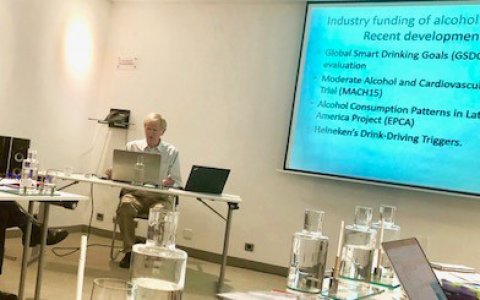Contributing to international research capacity building initiatives
Through its membership of the International Confederation of Alcohol, Tobacco and other Drug Research Associations (ICARA), NCETA was represented by Professor Ann Roche at the ICARA Annual meeting on 27-29 August in Prague, Czech Republic.
The meeting was also attended by leading AOD researchers from Australia, Europe and the United States. These included Professor Tom Babor (ICARA President), Professor Roger H. Peters (University of South Florida), Professor Michal Miovsky (Carles University, Prague) Dr Niamh Fitzgerald (Stirling University), Dr Lynda Behrends (President, Australasian Professional Society on Alcohol and other Drugs) and Paul Griffiths (European Monitoring Centre for Drugs and Drug Addiction).
The meeting explored a number of crucial workforce development research and members were provided with:
- An overview of ICARA members’ training activities
- An overview of alcohol programs at the World Health Organization’s European Office
- An examination of the work of AOD research associations in the Czech Republic, Hungary and the Balkan countries
ICARA members also noted the significant amount of AOD workforce development research and related initiatives being undertaken in Australia and acknowledged that we are the only country in the world with a National AOD Workforce Development Strategy.
During the meeting, Professor Roche was invited by the ICARA secretariat to showcase NCETA’s local, national and international workforce development research activities. Her presentation (go to this web-site to view it) focused on international challenges and solutions for workforce development and AOD training with an emphasis on:
- The need for a systemic, broad and comprehensive approach to workforce development
- Expanding existing and growing new international research and training collaborations.
Professor Roche also used the meeting to build on NCETA’s growing international reputation by highlighting some of the Centre’s workforce development research outcomes and outputs which could be adapted for use in other countries and explored opportunities to forge new collaborations particularly with European-based researchers.











